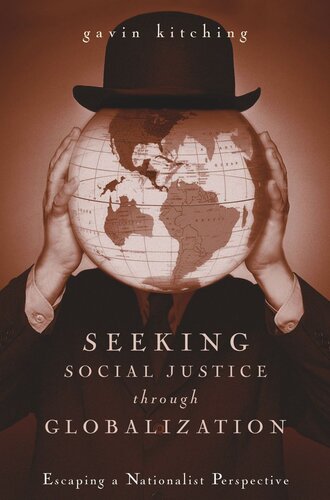

Most ebook files are in PDF format, so you can easily read them using various software such as Foxit Reader or directly on the Google Chrome browser.
Some ebook files are released by publishers in other formats such as .awz, .mobi, .epub, .fb2, etc. You may need to install specific software to read these formats on mobile/PC, such as Calibre.
Please read the tutorial at this link: https://ebookbell.com/faq
We offer FREE conversion to the popular formats you request; however, this may take some time. Therefore, right after payment, please email us, and we will try to provide the service as quickly as possible.
For some exceptional file formats or broken links (if any), please refrain from opening any disputes. Instead, email us first, and we will try to assist within a maximum of 6 hours.
EbookBell Team

4.3
98 reviewsAs demonstrations at meetings of world economic leaders have dramatically shown, the "globalization" of the world economy is now a subject of heated political debate. Generally supported for its positive benefits by neoliberals and attacked for its negative repercussions by the left, it is a multifaceted phenomenon, and even the term is much in dispute as both academic experts and political activists tend to define it in ways that best support their own biases.
In this book, Gavin Kitching is not interested so much in providing new information about globalization as an economic and social process as he is in clarifying how globalization is to be understood and evaluated as a "good" or "bad" thing. Central to his argument is that a proper evaluation requires historical self-awareness, both of the historical background of globalization itself and of the historical origins of the very norms by which such evaluations are made.
Unusual for a book written from a leftist perspective, Seeking Social Justice Through Globalization argues that those who care for social justice should seek more globalization, not try to prevent its development or roll it back. In his "modified Ricardian" analysis, Kitching warns especially about the constraints that the inherited discourse of economic and cultural nationalism places on the full potential of globalization to improve the welfare of poor people, which is his principal concern.